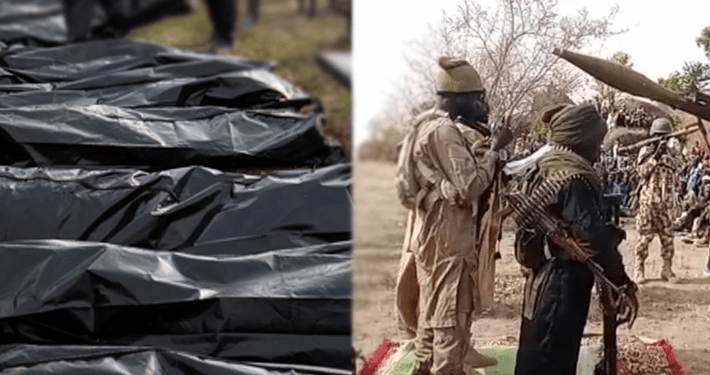Sub-Saharan Africa now accounts for nearly 59 per cent of all terrorism-related deaths globally despite the continued effort by member states to end it, says UN deputy secretary-general Amina Mohammed.
She said this on Tuesday during a UN Security Council meeting on maintaining international peace and security.
According to Ms Mohammed, for three years, terrorism-related deaths have soared past 6000, making up more than half of all global fatalities.
She said Burkina Faso now leads the world in terrorism deaths with a staggering 68 per cent increase, and with little support to reverse the trend.
“Africa has tragically remained the epicentre of global terrorism,” added the deputy UN chief. “In all its forms and manifestations, terrorism is the most significant threat to peace, security and sustainable development across the continent today.”
On her part, the impact of terrorism on women and families is particularly devastating. Ms Mohammed noted that terrorists frequently exploit and brutalise women through sexual and gender-based violence, including forced marriages and abductions, causing profound trauma that reverberates through entire communities.
She said terrorist networks are now pooling resources, finances, fighters and expertise while sharpening their capabilities of new technologies, including unmanned aerial systems.
Ms Mohammed said the pact for the future, agreed upon in September 2024 by UN member states, gives renewed momentum to global efforts against terrorism, adding that now is the time to implement promises made in the pact with determined action.
Ms Mohammed highlighted three priority areas, the first being the need to address the drivers of terrorism continually. She said terrorism thrives on fragility and feeds off poverty, inequality, and disillusionment.
“When financing development regresses, when fragile institutions are matched with weak governance, and when women and youth are excluded from decision-making when public services are scarce or unequal, these conditions create fertile ground for radicalisation and recruitment,” Ms Mohammed pointed out.
She noted that human rights-based approaches to counter-terrorism grounded in accountable and inclusive institutions were needed. Ms
Mohammed further said regional cooperation was the linchpin of any effective counter-terrorism strategy, adding that fragmenting efforts would serve perpetrators.
“The African Union and its counter-terrorism centre have a leading role to play, but we must go further. Above all, we must ensure that regional efforts are in lockstep, unified in purpose and aligned with the strategy.
“This is the only way we believe that we can ensure phasing down the threat of terrorism together. Ultimately, African-led and African-owned solutions must take the lead in tackling terrorism across the continent,” she said.
(NAN)






